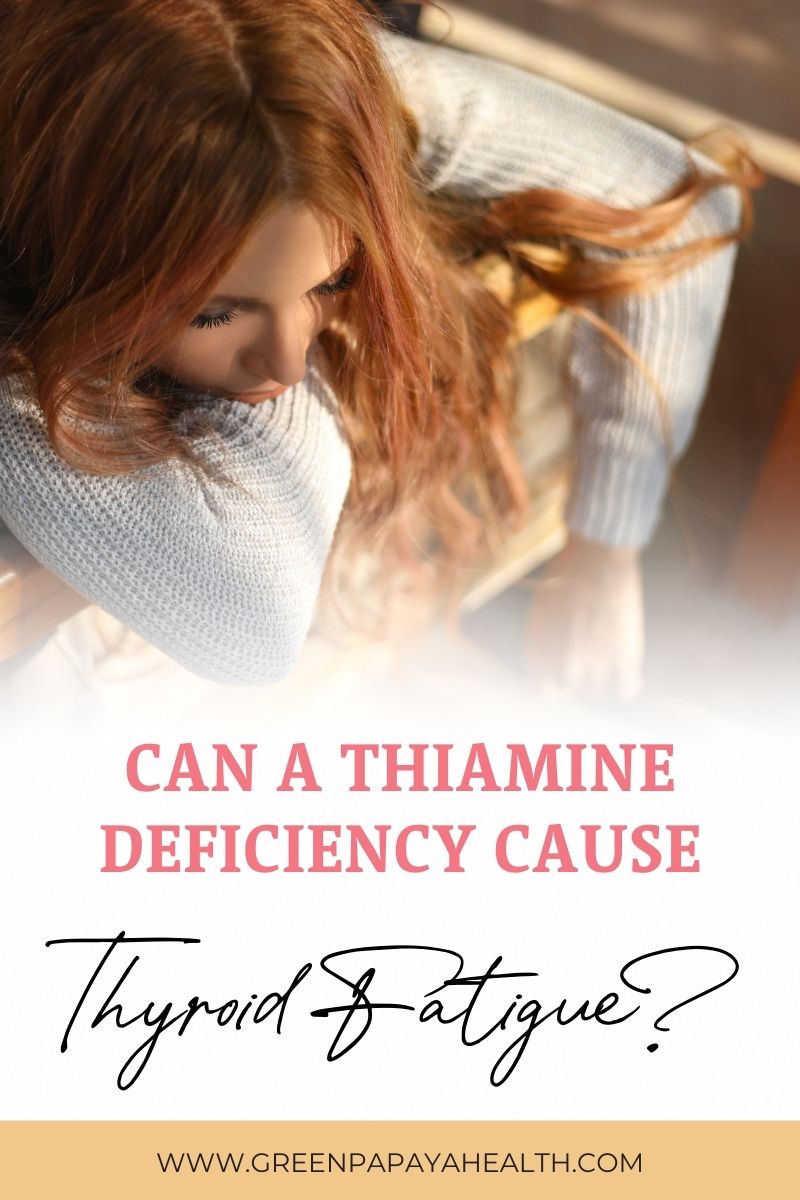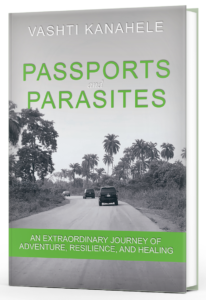Could a Deficiency in This B Vitamin Be Contributing to Your Thyroid Fatigue?
As thyroid warriors, we’re no strangers to fatigue — the kind of physical and mental sluggishness that doesn’t resolve after eight hours of sleep or even a full day of relaxation. We often find ourselves crashing on the couch after getting home from work in the evening, or feeling physically exhausted and brain fogged despite taking thyroid medication and consuming a nutritious diet. No matter what we do, we can’t seem to regain the energy we once had.
While persistent fatigue is common among those of us with endocrine disorders such as hypothyroidism and autoimmune conditions like Hashimoto’s thyroiditis, there’s a B vitamin that’s scientifically proven to reduce thyroid fatigue: Thiamine (or thiamin).
The Important Role Thiamine Plays in the Body
Also known as vitamin B1, mild deficiencies in thiamine are common among Hashimoto’s patients — as the primary role of this important water-soluble B vitamin is to turn carbohydrates into fuel and help with releasing hydrochloric acid into the stomach. Thiamine also helps with digesting fats and proteins.
That said, those with autoimmune thyroiditis often lack the stomach acid needed to properly digest proteins and absorb the vitamins and minerals consumed from high-thiamine foods alone. This is why it’s so important to maintain healthy levels of vitamin B1: Mild thiamine deficiencies can lead to persistent fatigue, low stomach acid, abdominal pain, brain fog, and depression.
Can You Treat Thiamine Deficiency With Diet Alone?
It’s possible to incorporate more thiamine-rich foods into your diet when experiencing thyroid fatigue, as higher levels of vitamin B1 can be found in beef liver, legumes, pork, nuts, and whole grains. However, many of us with Hashimoto’s and thyroid disease follow a paleo or autoimmune paleo (AIP) diet that restricts us from eating many high-thiamine foods like grains, legumes, and nuts. Liver and pork are acceptable when following an AIP diet, while seeds, eggs, and nuts may be consumed on a paleo diet.
Moreover, several other commonly consumed foods and beverages contain thiamine-destroying enzymes (known as thiaminases). These foods include raw fish, shellfish, coffee, and tea. For those who do not follow paleo or AIP diets, it’s best to consume thiamine-rich foods away from any foods containing thiaminases.
According to an article published in the Journal of Nutrition (JN), thiamine destruction can also occur when:
- Cooking thiamine-rich foods at high temperatures, or for longer periods of time.
- Boling high-thiamine foods in water, and then discarding the cooking water.
- Processing foods high in thiamine (like breads).
- Roasting pork loin (instead of braising).
- Cooking snap beans and green peas in baking soda water.
To preserve the content of vitamin B1 in thiamine-rich foods, avoid rinsing cooked pasta or rice (if consuming grains), and cook vegetables in small amounts of water with the lid pan on. Opt for raw nuts and seeds over roasted, and avoid discarding cooking water when possible.
Thiamine Supplementation: A Treatment for Thyroid Fatigue
If you, like many other thyroid warriors, cannot increase your intake of thiamine-rich foods without worsening many of your thyroid symptoms, supplementation is another option. A study published in the Journal of Alternative and Complementary Medicine found that in addition to taking thyroid medication, supplementing with 600 mg of thiamine daily could safely treat thyroid fatigue in a matter of hours or days.
To conduct the study, researchers Antonio Costantini and Maria Immacolata Pala followed three individuals with Hashimoto’s fatigue over a period of two months, treating them with oral or parenteral thiamine. Each patient’s thiamine levels were tested before and after the start of the study, and the Fatigue Severity Scale was used to measure their fatigue symptoms. All three patients reported a decline in their fatigue, either partially or completely.
While Dr. Izabella Wentz recommends supplementing with 600 mg of thiamine HCI or benfotiamine daily, those weighing more than 132 lbs may need to increase their dosage in order to reap the most benefits. Daily doses of between 600 and 1,500 mg are most common among those with persistent fatigue, Hashimoto’s, and chronic conditions like inflammatory bowel disease (IBD).
If you’re struggling with extreme fatigue and exhaustion that holds you back from living life to the fullest, I can help. Like you, I’m no stranger to fatigue — and I’ll use my experience and passion for women’s health to help you to boost your energy levels and feel amazing once again.
Ready to beat thyroid fatigue, boost your energy levels, and start getting your life back? Schedule your 90-minute Vital You VIP Consult, apply for the Thyroid Reset Method™, or visit my website to learn more about how I can help you heal from Hashimoto’s and thyroid disease.
Sources:
- https://www.sciencedirect.com/science/article/abs/pii/S193414821000331X
- https://thyroidpharmacist.com/articles/thiamine-and-thyroid-fatigue/
- Wentz, I. (2017). Hashimoto’s protocol (pp. 182-185). HarperOne.
- https://www.hsph.harvard.edu/nutritionsource/vitamin-b1/
- https://academic.oup.com/jn/article-abstract/19/3/285/4726176
- https://pubmed.ncbi.nlm.nih.gov/30725889/
- https://pubmed.ncbi.nlm.nih.gov/24351023/







Pingback: Seasonal Allergies, Vitamin Deficiencies, & Stress - Vashti Kanahele